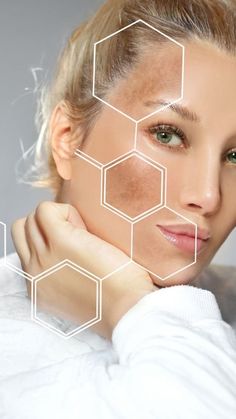
How to Care for Skin with Freckles and Melasma
Freckles and melasma are common skin concerns that affect many individuals worldwide. While these skin conditions are usually harmless, they can impact a person’s self-confidence and aesthetic appearance. Understanding what causes freckles and melasma, and how to care for skin affected by these conditions, is essential for maintaining healthy, glowing skin.
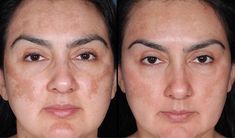
Understanding Freckles and Melasma
Freckles are small, flat, brownish spots that appear on the skin, often triggered by sun exposure. These spots are usually genetic, meaning some people are more predisposed to developing them based on their skin type, specifically those with lighter skin tones. Freckles are more common in children and may fade in the winter months when sun exposure is reduced.
Melasma, on the other hand, is a condition that causes brown or gray-brown patches to develop, primarily on the face. It is commonly seen on the forehead, cheeks, nose, and upper lip. Unlike freckles, melasma is often linked to hormonal changes, which is why it frequently affects women during pregnancy (often referred to as the “mask of pregnancy”), or those using birth control pills or undergoing hormone replacement therapy. Sun exposure is another major trigger for melasma, as UV rays can exacerbate the pigmentation.
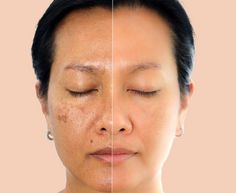
Step-by-Step Guide to Caring for Skin with Freckles and Melasma
While it’s important to understand that freckles and melasma are not harmful, proper skincare can help manage their appearance and prevent further skin damage. Here are some tips to care for skin with these conditions:
- Sun Protection is a Must For individuals with freckles or melasma, sun protection is the most crucial step in preventing the worsening of pigmentation. UV rays can trigger the production of more melanin, darkening freckles and making melasma patches more prominent.
Use Broad-Spectrum Sunscreen: Choose a sunscreen with a broad-spectrum formula that protects against both UVA and UVB rays. A sunscreen with SPF 30 or higher is recommended for daily use. Apply it generously to the face, neck, and any other exposed areas, and reapply every two hours, especially when outdoors.
Wear Protective Clothing: In addition to sunscreen, wear wide-brimmed hats, sunglasses, and protective clothing when spending extended periods of time in the sun.
Avoid Sun Exposure During Peak Hours: The sun is most intense between 10 a.m. and 4 p.m., so try to stay indoors during these hours or seek shade if you must be outside.
- Regular Cleansing and Moisturizing
Proper skincare starts with a clean and well-moisturized base. Use gentle cleansers that do not strip the skin of its natural oils and hydration. Over-drying the skin can lead to irritation, which may worsen pigmentation.
Choose a Gentle Cleanser: Look for cleansers that are free of harsh chemicals and fragrances, as these can irritate sensitive skin.
Hydrate the Skin: Use a moisturizer suitable for your skin type. A well-hydrated skin barrier is essential for preventing external stressors that can aggravate pigmentation.
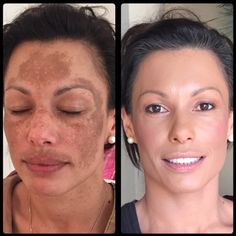
- Exfoliate Regularly, But Gently
Exfoliation helps to remove dead skin cells, which can make pigmentation appear darker or more noticeable. However, it’s important to exfoliate with caution to avoid skin irritation or damage.
Use Chemical Exfoliants: Alpha hydroxy acids (AHAs), such as glycolic acid, and beta hydroxy acids (BHAs), like salicylic acid, are great for exfoliating the skin without physical scrubbing. They help remove dead skin cells while promoting cell turnover, which can lighten hyperpigmented areas over time.
Avoid Harsh Physical Exfoliants: Scrubs with rough particles can irritate the skin and make pigmentation worse. Stick to gentle exfoliating products to avoid creating further damage.
- Incorporate Skin-Soothing Ingredients
Certain ingredients can help lighten dark spots, reduce inflammation, and calm the skin.
And if you are looking for these two wonders, it is not difficult anymore. Visit our shop and get the best deals at this link :
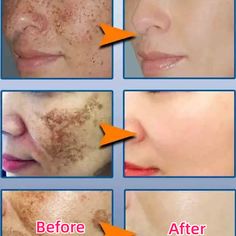
Vitamin C: This powerful antioxidant helps to lighten dark spots and brightens the overall complexion. Using a serum with stabilized vitamin C can fade freckles and melasma over time by inhibiting melanin production.
Niacinamide: This form of vitamin B3 helps to reduce the appearance of dark spots and evens out skin tone. Niacinamide is known for its anti-inflammatory properties, making it perfect for calming irritated or sensitive skin.
Retinoids: Retinoids, such as retinol or tretinoin, help with cell turnover and can fade dark spots over time. However, they can be irritating, so start slowly and use them in combination with a good moisturizer.
- Consider Professional Treatments
For more persistent cases of melasma or freckles, you may want to consult a dermatologist for professional treatments. Some effective options include:
